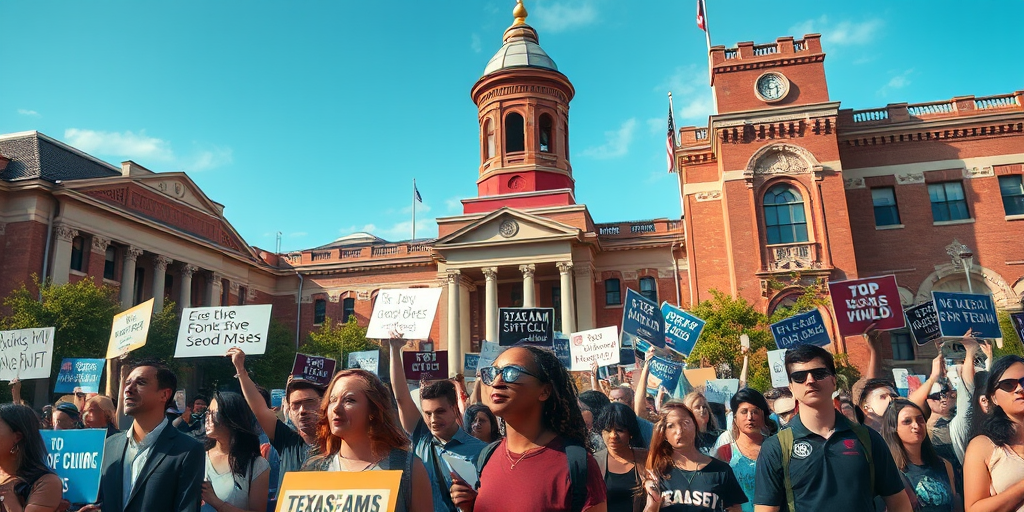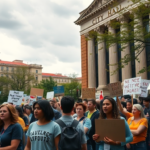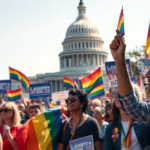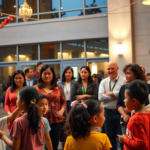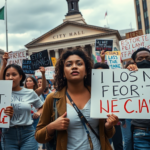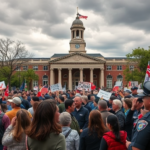Chilling Effect: How ‘Anti-Woke’ Laws and Cancel Culture Stifle Classroom Discourse
As debates over free speech in education rage on, so-called “anti-woke” legislation and cancel culture are increasingly embroiled in conflict and controversy, creating a chilling effect in academic settings across the United States. This phenomenon predominantly affects discussions on critical race theory and gender identity, leading many educators to self-censor amid escalating political and legal pressures.
Silencing Academia
At the forefront of opposing this legislative trend is the Foundation for Individual Rights in Expression (FIRE), a non-profit advocacy group dedicated to defending free speech in academic circles. FIRE has actively challenged laws that restrict discourse in higher education, notably Florida’s “Stop WOKE Act.” The legislation, currently under a preliminary injunction due to its contested constitutionality, seeks to expunge specific topics from educational discussion, representing what critics term an infringement of First Amendment rights.
However, Florida is far from an isolated case. Incidents such as the firing of a Texas A&M University professor for discussing gender identity in a children’s literature class highlight a broader, systemic issue—where law interpretation and social pressures converge to suppress educational freedom, regardless of a law’s explicit language.
A Cycle of Chill
Generally, the pattern unfolds with a set of vague legislative measures that legislators or social arbiters misinterpret or overreach their bounds. Outrage campaigns often follow, driving university administrations to take punitive steps against educators to quell public dissent, which in turn fuels self-censorship among staff worried about potential conflicts or repercussions.
Keenly observing this process, FIRE maintains that measures designed to ban certain ideas or discussions in academic settings are unconstitutional and detrimental to educational integrity. The organization calls for policies that uphold academics’ rights to free speech and diversity of thought, rather than suppressing discourse via broad, punitive regulations.
Community Impact: The Local Angle
In educational hubs within states like Texas and Florida, the specter of these laws looms large, leading to noticeable shifts in academic cultures. For local residents and communities, the impact manifests as a narrowing of educational content students are exposed to—an erosion of diverse ideas and a critical thinking vacuum.
Local educators express concern over these developments. Alicia Fernandez, a lecturer at a state college in Texas, remarks, “It’s alarming that we’re at a place where discussing certain books or ideas may cost someone their job. The heart of education is being able to explore a multitude of perspectives without fear.”
Moreover, such legislative maneuvers disengage potential students—particularly those from minority backgrounds or those interested in social justice issues—from pursuing academic careers in an environment perceived as stifling diverse viewpoints. As local careers in academia dwindle, so too does the vibrant, intellectual diversity that communities like the Rio Grande Valley have historically nurtured.
Lessons from the Past and Looking Forward
The push against “woke” ideology echoes past clashes over academic freedom and free speech, drawing parallels to earlier fights for civil liberties. Yet, critics offer that a legislative legacy focused on exclusion rather than inclusion curtails progress.
If lawmakers pivot towards inclusion-based legislative models that value diverse viewpoints without penalizing challenging discussions, states can foster an environment that engenders innovation and comprehensive learning—a forward step that safeguards not just rights, but bolsters community growth.
Balancing Perspectives
Despite this, divergent views persist. Proponents argue that such laws safeguard against indoctrination, ensuring educational spaces are neutral and devoid of polarizing ideologies. “These laws are about creating balanced environments and ensuring students aren’t led astray by ungrounded theories,” insists Laura Kennington, a parent involved in Texas’s education policy initiatives.
Conversely, detractors say it paints academic environments into corners, forcing students and educators alike to shy away from topics that spur necessary dialogue. In effect, the resultant legislative gray areas foster fear rather than engagement, discouraging academic rigor and weakening educational resilience.
Resources and Advocacy
Moving forward, resources are available for residents and academic professionals facing or fearing repercussions from these developments. FIRE, as a contributor to this ongoing conversation, offers case support and legal guidance through its platform. College personnel affected by such laws are encouraged to seek assistance to protect their educational freedoms.
In conclusion, as local communities navigate the implications of these “anti-woke” laws, the call for preserving academic freedom within American education is growing ever more emergent and imperative. Through collective advocacy and balanced reform, there lies potential to secure a future where local communities thrive on diversity of thought and intellectual challenge, rather than navigating the perils of ideological uniformity.

